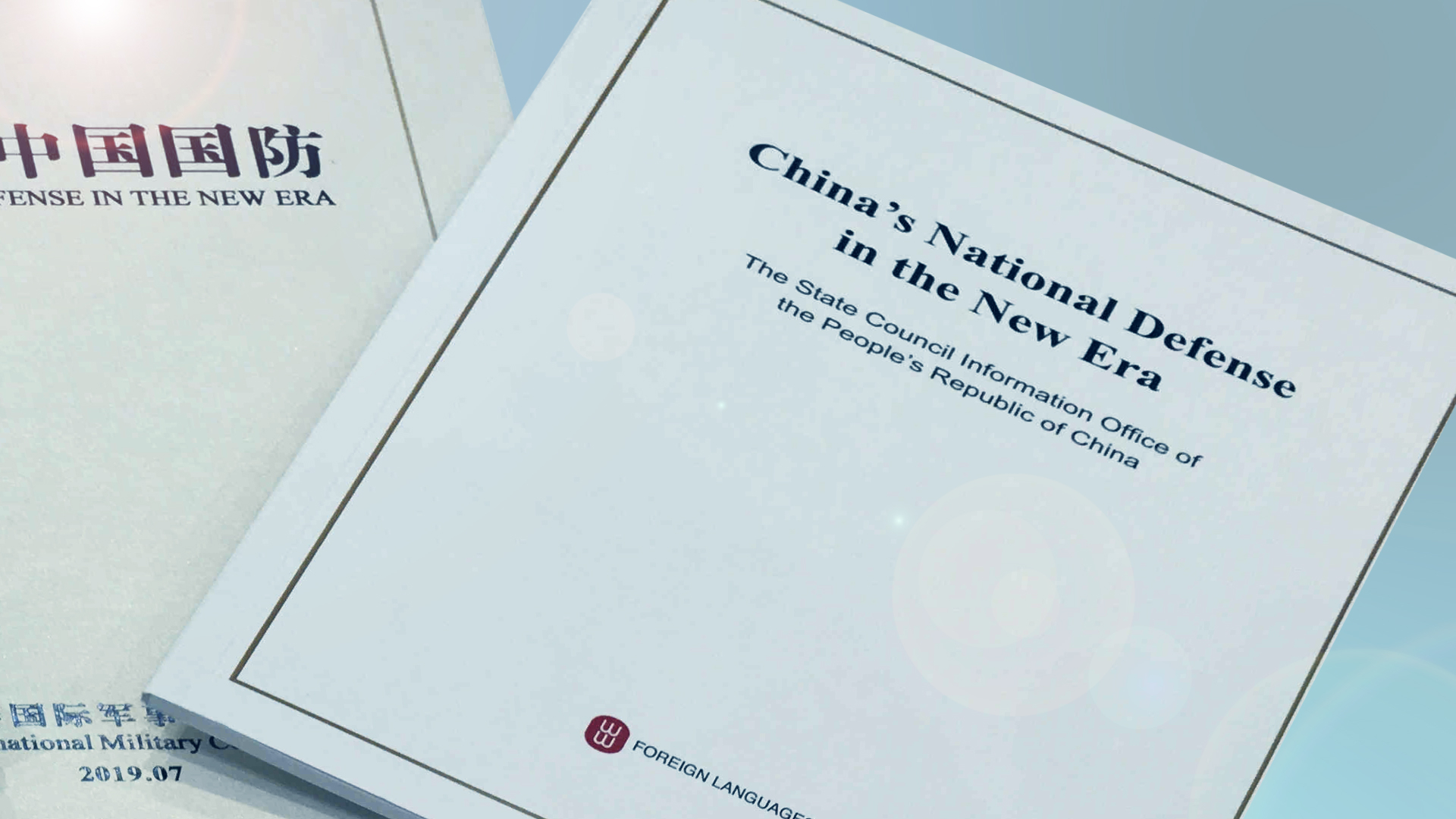

China released a white paper on national defense in the new era on July 24. It states that, as a country that highly values harmony and peace, China will stick to a defensive national military policy and never seek hegemony. So, what is China’s military role in global affairs? How will China pursue its goal of maintaining global peace and stability? And what changes and reforms are coming for China’s new-era military?
This white paper is the tenth on national defense issued by the Chinese government since 1998 and the first comprehensive report since the 18th National Congress of the Communist Party of China.
Teng Jianqun, director of the Department for American Studies at the China Institute of International Studies, pointed out that “we’re facing new challenges from the world, from our neighboring countries. And this (white paper) is a very good understanding on the security environment we’re facing now, and also gives a detailed description on the responsibilities, tasks of PLA, and also gives a detailed description on the achievements of the military reforms started from 2015”.
One of the distinctive features of China's national defense in the new era is the vow to never seek hegemony, expansion or spheres of influence around the world.

Senior Colonel Zhou Bo from China’s Ministry of National Defense said this vow is “nothing new”, but “simply stressed again in part to answer the concern of the rest of the world”. “If you look at China’s history, at least we can conclude safely that last 40 years is a time of China’s peaceful rise, so even those people who criticize China’s sovereignty dispute with other countries in the South China Sea cannot deny that all PLA’s activities overseas are totally peaceful and helpful.”
He also pointed out that the United States’ taking China as “a primary competitor is totally not justifiable…China’s rise is peaceful, and China still wants to engage with the United States and will never have intention to drive the United States out of the Western Pacific, because the United States is indeed a Pacific nation on the other side of the Pacific.”
As for some inappropriate and incorrect understanding of China’s military spending, Teng pointed out that “some countries and people would like to exaggerate the military spending of China to give some foundation for the China threat, so this is actually a game played by some other countries, by some experts”.
The white paper also delivers a quite tough tone towards the Taiwan issue. It says China must be, and will be reunified, adding that Beijing won't give up the option of the use of military force and will take all necessary means.
In terms of America’s arm sales to Taiwan, he said: “I think Taiwanese authorities know very clearly that they’re not really buying weapons, they’re buying insurance.” “Many years ago, when the mainland launched missiles across the Strait to give warning to the separatists of Taiwan, some senior American officials warned Taiwanese authorities that you could not take it for granted that you can write a check with American blood.”
Teng agreed with the idea that America has used Taiwan as “a bargaining chip” in the relationship between China and the United States. “Especially when Donald Trump took the office in the White House, he would like to do something in Taiwan, including some arm sales and also to send some high-level officials to pay a visit to Taiwan, so this is actually a game played by President Donald Trump and his followers in the White House and in the cabinet.”
(If you want to contribute and have specific expertise, please contact us at opinions@cgtn.com)

Copyright © 2018 CGTN. Beijing ICP prepared NO.16065310-3
Copyright © 2018 CGTN. Beijing ICP prepared NO.16065310-3